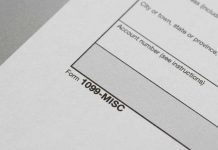
Introduction
If you are a first-time homeowner, then you need to learn a few household tasks that will save your life. (And, save your money.) Although taking out the trash and doing the dishes are the foundational chores of the household, you should really consider delving deeper. Doing-It-Yourself, or DIY, your way through household chores and maintenance can save you a large chunk of change.
This article will tell you about eight very important tasks that you should learn how to do, as a homeowner. Yes, you are tired from work and you just want to lie down. But, you will save a lot of money and effort, if you know how to perform these tasks.
What are the Most Important Things Every Homeowner Should Know?
Performing regular maintenance on your house is very important for you and your home. As a first-time homeowner, you might not be used to this type of responsibility. After all, when you were a tenant, your landlord was responsible for the maintenance and repairs. You just paid the rent and stayed in your apartment. Now, things are going to be a little different. You will need to maintain your home and fix it too. But, instead of calling a handyman every time your home faces a hiccup, you can fix some things in your home by yourself.
Unclogging a Drain
It happens all the time, doesn’t it? You are washing the dishes or using the bathroom sink. Then, something clogs the drain and your sink starts pooling with dirty water. You might be tempted to call a plumber, so they can fix it for you. But, unclogging a drain is super easy and anyone can do it. (Yes, even you.) The best way to unclog a drain is to use a small plunger and a drain snake. Unclogging chemicals are a no-go; they are expensive and they are not very good for the environment.
Once you have removed the clog, then you should clean the nasty stuff in the sink. You can clean your sink by putting one cup of baking soda and four cups of boiling water down the drain. Finally, you should add a cup of vinegar after the boiling water. This will remove all loose dirt and keep your drain shiny and clean.
Setting A Thermostat Properly
One of the best things that you can spend your money on is a really nice thermostat. Your thermostat will keep the temperature just right in your home, no matter what is going on outside. But, programming a thermostat might not be that easy. (Every thermostat is more different than the next.) According to the Department of Energy, it would be best to set your thermostat to 68 degrees in the winter and 78 degrees in the summer. These temperatures are for the most efficient use of energy. However, this depends on the climate of your home’s area. If you live in constant cold weather, then your thermostat’s temperature should be at least 55 degrees.
Weather-Stripping Installation
Weather-stripping is sealing your windows and doors with weather strips that minimize air leaks. Simply put, weather-stripping keeps the cold air inside your home in the summer and keeps the cold air outside your home in the winter. This will help your home stay warm and cozy, but it will also save you some money with your energy bills. You have to count how many windows and doors you have around the house and measure their perimeters. According to the United States Department of Energy, weather-stripping your home can save 15% on your energy costs. (That sounds perfect for you, right?)
Turning Off a Smoke Detector
With your new home, you can find that there are electric smoke detectors that have a battery backup. If your smoke detector gives off a false alarm and you have made sure that there is no fire or smoke in your home, then you need to cut your smoke detectors’ power. You do not want to find out that your smoke detector gives off a false alarm at 3AM on a Wednesday. It would be best to check on your smoke detector every month and replace the batteries twice a year. Additionally, you should consider replacing your smoke detector all together every ten years or so.
Finding and Utilizing Your Main Water Shutoff Valve
Imagine coming home and finding that your home is flooded with water. (The horror.) If that happens, the first thing you need to do is shut off your water source or the water will keep on flowing. This is why you should know where your main water valve is and how to shut it off. When you are moving into your new home, you should explore the whole house from top to bottom. You might find the main water valve in the perimeter of your home. But, you should make sure that the main water valve is not covered with drywall. (This includes your basement, garage, or even crawlspace)
Planting a Tree and Gardening
If you want to be really extra with your home, then you should learn how to plant a tree. (For more extra-ness, you should pick up the habit of gardening.) From picking vegetables that are grown in your garden to admiring the flowers from your kitchen window, gardening is a sight for sore eyes. You should keep in mind that you cannot fertilize after planting since that will ruin the young tree. Also, make sure that you do not smother your trunk with dirt; this will rot the tree bark and suffocate the tree. But, overall, you will be able to improve your home’s exterior with gardening.
Fixing Cracks and Gaps At Home
Fixing cracks and gaps in your home is the reduced alternative for caulking. (You should do both.) Caulking is sealing air for fundamental parts of your home. This includes window frames and electrical outlets in your home. You should caulk cracks in your home after you identify your leaks in the home and evaluate your home’s evaluation. According to the Department of Energy, “Caulk is a flexible material used to seal air leaks through cracks, gaps, or joints less than 1-quarter-inch wide between stationary building components and materials.” Additionally, caulking can prevent water damage in your home’s interior and exterior. But, you should apply to faucets, water pipes, drains, and other plumbing structures.
Cleaning Grout and Refrigerator Coil
Tile flooring can be decent on the eyes, but if there is grout, then it won’t look so decent. You should clean the grout on your tiles or around your bathtub. Grout is not a stubborn form of dirt, but you should make sure that it does not seep deeper into the tile. If it does, then you might look at replacing your tiles all together.
Your refrigerator is one of the hardest utilities in your home; it literally works twenty-four\seven. This means that it is crucial for you to maintain it, rather than fix it. (Food will be spoiled and it will cost a fortune. So, just avoid all that by keeping it maintained.) One of the main reasons you might have a broken refrigerator is dirt coils. Dirty coils make the refrigerator work twice as hard at a reduced performance. So, you should consider cleaning the coils every once in a while.
What Else Should You Learn?
There are other household tasks that will make your life easier and your wallet fuller. This could include painting a room or the exterior of your home, and cleaning the gutters of your roof. Painting could take a lot of your wallet and yet it is so simple. The only downside is that it might take a lot of time to get it done. On the other hand, cleaning your gutters is absolutely essential. It may be disgusting and you might be frowning the whole time, but you are saving your home. Clogged gutters could lead to mold and damage to your roof, so make sure you clean your gutters periodically.
Conclusion
In conclusion, you will not lose anything when you perform these household tasks. You will only learn, and save money. (Saving money is a very important incentive for anyone.) By performing maintenance on your home, you are making sure that your home is in tip-top condition. (Remember that your home is where you spend time most of the time.)



























